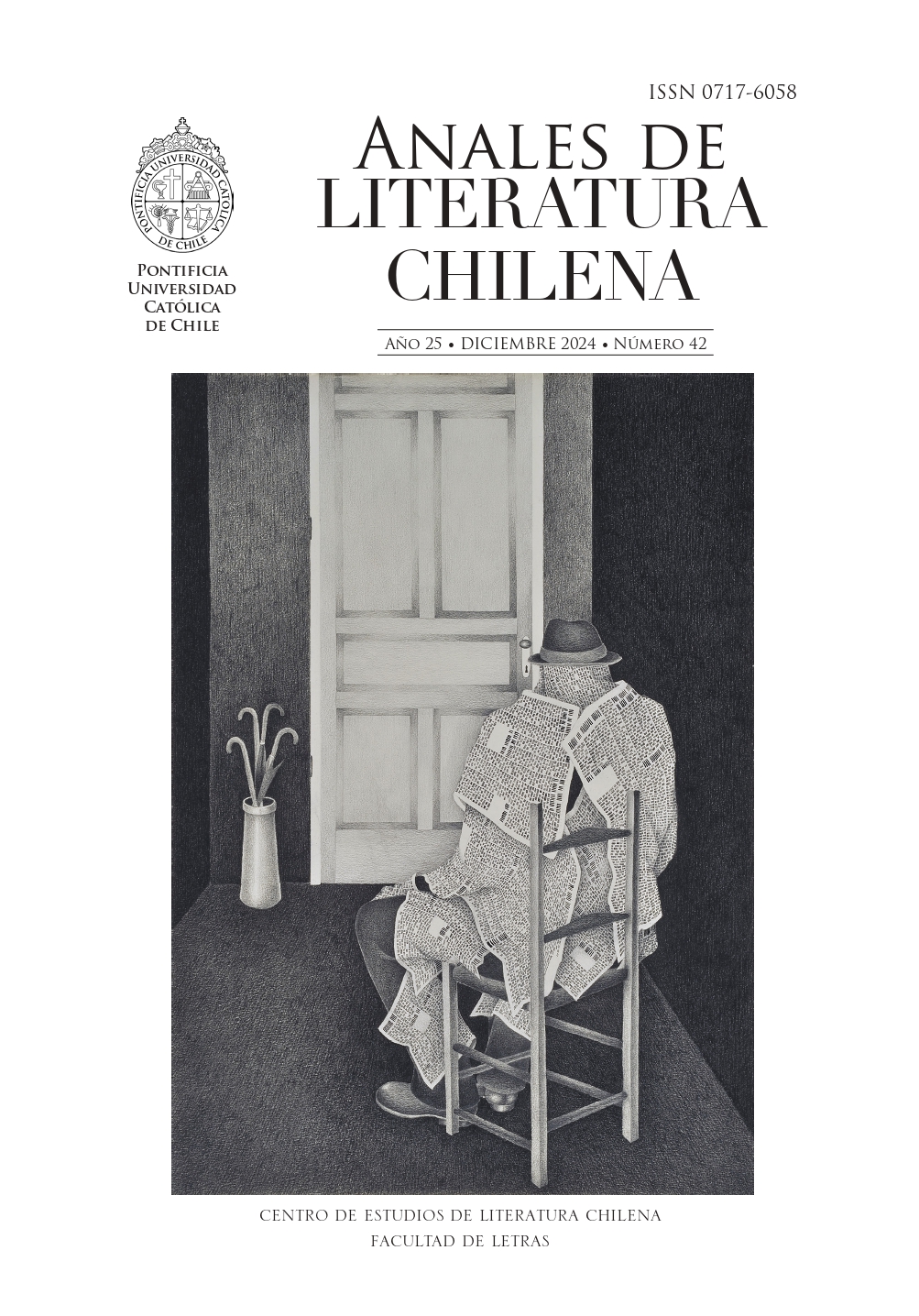NARRATIVE, LABOR, AND MIGRATION IN RECENT CHILEAN LITERATURE
DOI:
https://doi.org/10.7764/ANALESLITCHI.42.07Keywords:
Neoliberalism, border, Chilean literature, migration, precarious laborAbstract
The relationship between Chilean narrative and labor has been primarily investigated within the context of the mid-twentieth century (Generation of ‘38). During the rise of neoliberalism and in the post-dictatorial scenario, literary representations have explored the increased visibility of new minorities that have emerged within the world of work, where migration is one of the topics timidly appearing in a literary landscape affected by the decline of the proletariat as a class. This article aims to characterize the representation of work and migration, exploring their subjective characteristics, the precarization of labor, and the deterritorialization of the job market, where workers are assimilated as mere production inputs. Illegal border crossings give rise to new imaginaries, where vulnerability, animalization, and bodily and sexual subjugation become central themes in
the aesthetics of migrant workers, countering the successful neoliberal narrative.
Downloads
Downloads
Published
How to Cite
Issue
Section
License

This work is licensed under a Creative Commons Attribution-NoDerivatives 4.0 International License.


